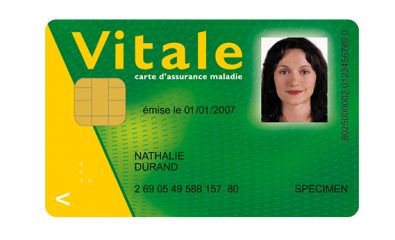Supplementary pensions are an essential component of the employee benefits system, enabling employees to increase their standard of living once they retire. As a complement to the compulsory basic and supplementary schemes, it offers a suitable solution for anticipating the drop in income associated with the cessation of professional activity.
What is a supplementary pension?
Supplementary retirement is a voluntary scheme set up to enable employees to build up additional retirement savings. It generally takes the form of insurance contracts, savings plans or specific schemes offered by the company. Contributions are invested and grow over time, building up capital or guaranteeing an annuity to be received on retirement.
There are various types of supplementary pension, including the Plan d’Épargne Retraite Populaire (PERP), the Plan d’Épargne Retraite Entreprise (PERE), and the Madelin contract for non-salaried workers. Each of these schemes has its own specific features and tax advantages, enabling employees to choose the solution best suited to their situation.
What’s the point?
The main purpose of supplementary retirement is to supplement pensions from compulsory schemes. The latter are often insufficient to maintain the same standard of living as before retirement, hence the importance of building up additional savings.
With longer life expectancy and successive reforms of the pension system, it is becoming increasingly crucial to prepare for retirement as early as possible. A supplementary pension is an ideal solution, to protect against a drop in income and ensure a better quality of life in retirement.
Supplementary pensions offer many advantages:
For your employees:
- They receive monthly contributions to a retirement account opened in their name with an insurer. These contributions are not included in their taxable income.
- These contributions are invested in financial instruments to generate interest.
- The savings they build up will provide them with a valuable income supplement when they retire.
- They benefit from a salary advantage that meets a pressing need and sets them apart from your competitors.
For you as an employer:
- You bring a real salary advantage to your team, and thus round out your compensation package.
- You offer your employees a deferred income, financed by contributions exempt from social security charges and taxes.
- You build long-term employee loyalty.
MIA Assurances, a brokerage firm specializing in helping very small businesses set up social protection solutions, is here to help you find the best retirement package for your employees.
Our studies are free of charge and non-binding, so don’t delay in contacting us to set up a supplementary pension scheme that’s just right for you!
Request a retirement quote
What about company savings schemes?
- The Plan d’Epargne Retraite (PER):
It is possible to subscribe to different types of PER (Plan d’Epargne Retraite):
– Compulsory PER: if your collective bargaining agreement so provides, or if you wish to enable your employees to prepare for their retirement in the best possible way, you as the employer can opt for a compulsory company PER. Payments will be made by both employer and employee.
– Optional PER: in this case, payments into the PER are not compulsory.
– Individual PER: you have this option if you are a self-employed individual or if your company has not set up such a scheme.
Offering a PER to your employees, or subscribing to a PER on an individual basis, is a significant way of supplementing your income once you retire: but you need to plan ahead! A PER can be used to supplement basic and compulsory pension schemes. It’s also worth noting that a PER allows you to reduce your tax bill: in fact, voluntary and optional transfers made to a PER are tax-deductible for employees! This tax advantage enables them to reduce their taxes while preparing for retirement.
- Company Savings Plan (PEE):
The PEE allows employees to voluntarily contribute to a specific savings account directly from their salary. These contributions are exempt from income tax and social security contributions, offering a significant tax advantage for employees.
Offering a PEE gives the company a major competitive advantage in the recruitment market, while increasing employee investment in the company. In addition, offering a PEE reduces the company’s tax rate by deducting contributions from its taxable profit. The company can also benefit from a tax credit equal to 8% of the sums paid into its employees’ PEE, further reducing its tax burden. Finally, if the company offers a PEE, it can deduct the amounts paid in as profit-sharing from its employees’ salaries. It’s an interesting tool for both employees and companies, helping to create a more attractive working environment while reducing the company’s tax burden!
- Collective Retirement Savings Plan (PERCO):
In addition to the PEE, the company can also offer its employees a Collective Retirement Savings Plan (PERCO). Employees contribute in the same way as with the PEE, but the funds invested are frozen until retirement, except in cases of early release provided for by law (purchase of principal residence, disability, etc.).
For the company, the PERCO can represent an additional means of strengthening its employee loyalty policy, while benefiting from tax advantages similar to those of the PEE, notably the deductibility of contributions from corporate income tax. It also offers an ideal framework for helping employees prepare financially for retirement, while promoting a long-term savings culture within the company.
Would you like to find out more about supplementary pension and saving schemes?
More information




